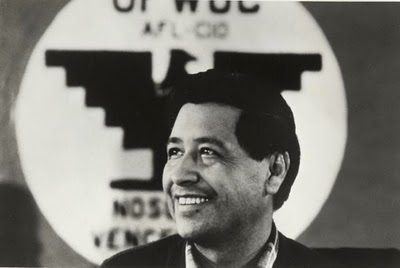Current UFW Union Bosses’ Disdain For Farm Workers’ Freedom Is No ‘Betrayal’ of Cesar Chavez
In a blistering op-ed (see the link below) published last week, Golden State commentator Steven Greenhut denounces the pro-forced unionism bureaucrats on the California Agricultural Labor Relations Board (CALRB) for trampling the rights of farm workers employed by a Fresno-based company in order to line the pockets of United Farm Workers (UFW) union bosses with forced union dues.
As Greenhut notes, nearly a quarter century ago, the UFW union hierarchy (then still headed by cofounder Cesar Chavez, who passed away in 1993) exploited its special privileges under California state labor law to acquire monopoly-bargaining power over employees of one of the nation’s largest fruit growers, Gerawan Farming. Â However, for reasons that remain unclear to outsiders, union officials never actually took the reins of power over employees at the company for more than two decades.
But in 2012 UFW kingpins came back to the Fresno farm and suddenly announced that they now demanded for the first time to exercise the monopoly-bargaining power they had acquired in 1990, and also to extract 3% of employees’ earnings in forced dues.
Freedom-loving Gerawan employees promptly began collecting signatures from their fellow workers to force a decertification vote, through which, under California labor law, they can at least theoretically oust an unwanted union.
After making a series of excuses to refuse to allow a decertification vote, the CALRB finally held one five months ago, but it still refuses to count the ballots. Â Fed-up farm workers suspect, for good reason, that CALRB bureaucrats are dragging their feet because they are in cahoots with UFW bosses, and fear the decertification will succeed if the votes are counted.
The CALRB and current UFW bosses richly deserve the contempt Greenhut pours on them, but his op-ed misses the target when it suggests the late Cesar Chavez would be appalled by what his successors are doing.
In reality, Chavez and his cohorts consistently opposed independently monitored votes by farm workers to determine whether a majority wanted to have UFW bosses act as their monopoly-bargaining agents. Â During the famous five-year “strike” that ultimately prompted California grape growers to sign a compulsory-unionism contract with the UFW elite in July 1970, Chavez and company “could never muster enough voluntary members to get up a good picket line,” as syndicated columnist James Kilpatrick pointed out at the time. Â It was not the chimerical “strike,” but a nationwide consumer grape boycott backed by many well-meaning people who had no idea how farm workers really felt about Chavez and his union, that persuaded growers to capitulate.
In a commentary appearing in the Washington Star on July 14, 1970, Kilpatrick added, with regard to the United Farm Workers Organizing Committee, or UFWOC, as the UFW union was known at the time:
On the record — the record of the UFWOC’s own reports to the U.S. Department of Labor — the grape workers, by and large, wanted no part of Chavez’ union. Â They simply would not join of their own accord. Â The few “elections” that were conducted were a travesty, wholly lacking in the safeguards demanded by the [National Labor Relations Board] in bargaining unit elections elsewhere.
You can validly accuse current UFW President Arturo Rodriguez of a lot of things, but it’s not fair to charge him with “betraying” his late father-in-law Cesar Chavez’ legacy. Â They are cut from the same cloth.

Since Cesar Chavez displayed nothing but contempt for farm workers’ right to choose, either collectively or individually, against monopoly control by his United Farm Workers (UFW) union until the day he died, it shouldn’t surprise anyone that current UFW kingpins want to deny employees of Gerawan Farming in Fresno the opportunity to vote out the UFW. Â (Image: www.csusm.edu)

